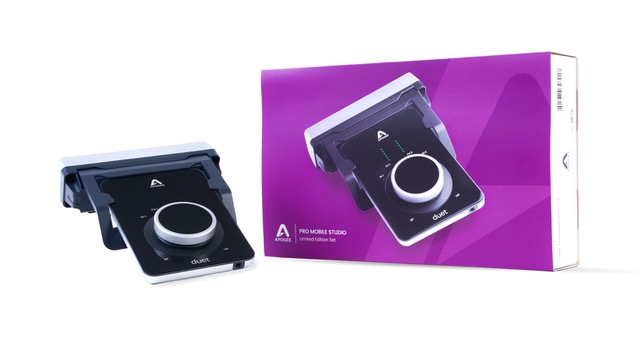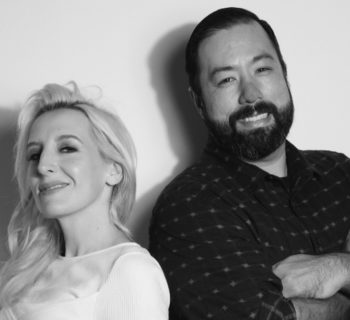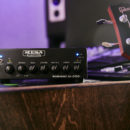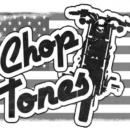| New company Charta has launched with the intention of revolutionizing how modern music contracts are drafted and executed. Before an artist or their label releases a song, every collaborator on that song has to sign a "clearance" agreement assigning their rights in the master sound recording to the artist. This covers producers, featured artists, audio engineers, session musicians and backing vocalists. In an era where over 100,000 new songs are being released on DSPs daily and collaboration is increasingly at the core of music creation, entertainment lawyers have been tasked with drafting and executing an insurmountable amount of clearance agreements necessitated by that collaboration. The result is that artists are often kept waiting for their lawyers to draft these agreements in order to finalize music for release. Once drafted, artists and their lawyers are kept waiting for months for their collaborators and their representation to review documents and return redlines, a process that often takes multiple rounds of revisions to reach an agreement mutually agreeable to both parties. With each passing year, the volume of music being released and the degree to which artists are collaborating with one another continues to grow rapidly while the number of entertainment lawyers does not, creating an ever-growing backlog of these agreements to execute without a solution in sight. Zachary Bohlender saw this problem firsthand as an entertainment lawyer and recognized that the problem was not only going to worsen with time, but that he and his peers were spending a disproportionate amount of their time executing relatively simple legal documents on behalf of their clients, inhibiting their ability to devote time to more skilled, strategic work. With no solution in sight, Bohlender took it upon himself to address the issue, leaving his post at the firm at which he was working to co-found Charta with his friend Arash Rashidi, an engineer with deep experience in AI. Charta's mission in the music industry is simple: to automate the process of getting clearance agreements done so artists can release music faster. Charta achieves this by building custom solutions for lawyers, labels and managers that fit their particular workflow and needs. Utilizing Charta’s intuitive interface, one can draft a clearance agreement and share that document with their collaborator or their representation in minutes or even negotiate all the terms of a clearance agreement on platform and subsequently sign the final document after it’s generated. Charta’s patent-pending process doesn’t rely on one-size-fits-all templates, and it can accommodate in excess of 800 unique scenarios for a producer agreement alone.. The result is a streamlined process that expedites the timeline on which artists can finalize these types of agreements in order to be able to release music with less delay and, in turn, alleviate their lawyers of the most onerous work placed on them. Charta’s solution to the ever-growing backlog of agreements to be executed in the music industry addresses a key pain point that ultimately aids all major stakeholders involved in the release of new music, from artists to labels, managers and lawyers alike. The benefits of alleviating this well-documented, ever-growing problem within the music industry is manyfold. Speaking to the implications of what Charta can do for artists and their lawyers, Bohlender shares: “There’s no single bigger pain point in the industry than clearance agreements. The backlog is immense and it prevents artists from releasing music, labels from achieving revenue, managers from focusing on creative and strategic guidance, and lawyers providing high value services. Gone are the days where every commercial artist is signed to a record deal and releases an album every couple years with a handful of collaborators. Charta is the missing link the music industry needs to come into the 21st century.” Other music industry veterans see the clear benefit, too. Tim Smith, CEO and founder of Blood Company shares: “I’ve known Zach for many years; beast of an attorney and amazing human. His many years of experience at leading firms in corporate / VC law and also entertainment law have positioned him uniquely to create this ingenious platform.” Charta launches with key industry support already under its belt. Its early adopters already include the record label APG, superproducer Kenny Beats, Colture and other international music companies already utilizing the platform. Ty Baisden, founder of Colture, sees the benefits of Charta as well: "Charta will be a turnkey solution for start-up producers, artists and writers who can't afford to pay for the expensive cost of having a lawyer review everything. It will help them be smarter business owners." The company also counts key members of the music industry as investors and advisors, including Che Pope, Matt Colon, Aloe Blacc, Boys Noize and Milana Lewis of Stem, whose own company's focus of affording artists more autonomy and transparency in their careers dovetails with Charta. Speaking to why she invested in Charta, Lewis shares: “Charta has built a platform that seamlessly translates between three languages — plain English, legalese and code. Applying those capabilities to the music industry is an incredibly powerful tool towards building a better future where artists can be paid more expediently and accurately, a vision that is shared with my companies Stem and Tone.” With Charta's launch, artists have the ability to take control of a process that has increasingly proven to be a major pain point in the music industry at large and alleviate entertainment lawyers of the most tedious part of their jobs. While Charta’s focus at the outset is clearance agreements, the company’s ability to expand to all varieties of agreements in the future has massive implications for streamlining the process of releasing music for the industry at large. For more information about Charta head to getcharta.com. |
 |














